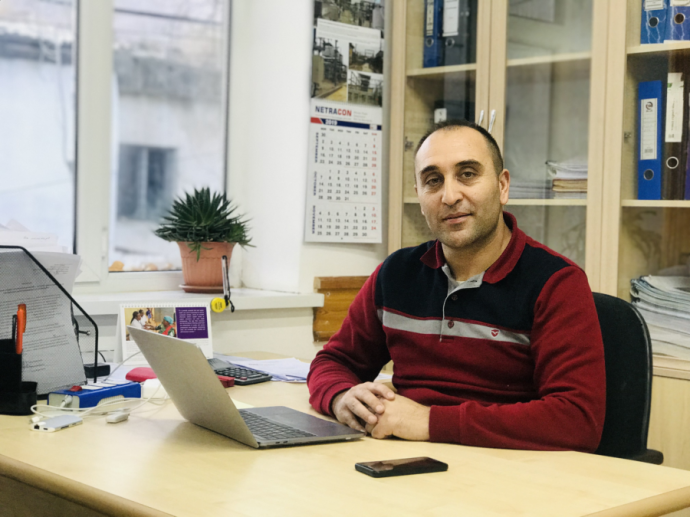

Ofarid is a graduate of the first cohort of the MA Programme in Economic Governance and Development in 2013. Currently he is a Regional Projects Implementation Lead of Pamir Energy Company, which is the first energy company in Tajikistan. Ofarid has been working at Pamir Energy since 2015 and he shares his story about his professional development since the day of graduation of the OSCE Academy till today.
Following my graduation from the OSCE Academy in 2013, I was approached by the United Kingdom Vol-unteer Service Overseas in Tajikistan, which offered me an opportunity to undertake Market Research Analysis of cross-border trade between Tajikistan and Afghanistan. In many ways, this served as a continuation of my MA thesis at the OSCE Academy that focused on the socio-economic impact of cross-border engagements. In particular, I investigated two aspects of this exchange process. 1. The rules and regulations recently incorporated into the legislation on cross-border trade aimed at fostering stronger regional economic ties. 2. The current trends of supply and demand for food products. As a result of this study, policy recommendations were made to the national, international and local stakeholders involved in developing cross-border trade/cooperation between Tajikistan and Afghanistan. Moreover, I joined the Institute for Public Policy and Administration of the University of Central Asia to act as Project Officer and Researcher in Tajikistan under a USAID-funded project entitled “Small and Medium Enterprise (SME) Growth for Central Asia”. In this role, I worked with a team to identify the potential sectors that can boost the economy of Tajikistan, the barriers to growth, and made policy recommendations to the stakeholders involved.
Through these experiences, I realized that Tajikistan’s economic growth can capitalize on regional integration. In particular, I found that, particularly in mountainous and rural areas, economic growth was largely dependent on the growth and security of the energy sector given that energy serves as a precondition or platform for socio-economic development across all other sectors. As such, it only made sense that my next step was in tak-ing a position with Pamir Energy (PE), an integrated utility company in VMKB, Tajikistan, established as the first Public Private Partnership in Central Asia in 2002. Today, PE provides clean, reliable, and affordable electricity to 96% of the population of VMKB, up from only 13% in 2002, with projects underway to achieve 100% electrification. The impacts of PE have been transformative across all aspects of life in VMKB, turning a heavily-subsidized, decrepit energy facility inherited from the Soviet era into a sustainable company. In addition to the impact that the company’s services are making domestically, the surplus energy generated is exported to the communities in the border districts of Northern Afghanistan through PE’s cross-border energy programme, established in 2008. In parallel with the expansion of PE’s services, my role has also grown. Currently, I serve as the Regional Lead for Project Implementation, overseeing the growth of energy projects in Tajikistan, Afghanistan, and also Pakistan. Through this role, I have been involved in seeing the regional transformation that occurs when energy opens doors to further development, and with a growing plate of work, I am ready to take on the challenges that have yet to come.
I was born and raised in Khorog, a town of 32,000 people located on the border between Tajikistan and Afghanistan. Throughout my life I witnessed significant challenges in the life of the communities living in the remote areas of GBAO. These challenges were mostly associated with poor socio-economic conditions of the region that resulted in poor quality of life and low standard of living. I always felt that the communities that raised me deserved better. I deeply felt connected to a larger mission to work in order to improve the quality of life for my community, which is why made the decision to return to Khorog to build my career and life. To me, my county and, more particularly, my region is a land of opportunity. Specifically, I could see its potential in playing a central role as a regional hub, connecting neighboring regions and countries. Today, my areas of work focus on regional integration, particularly in connecting with Afghanistan and Pakistan. In this way, the OSCE Academy also played a significant role in building a wide regional network for me. I continue to constantly engage with the networks I formed during my time there, both professionally and personally. The relationships that I established at the OSCE Academy and the processes of discussion and negotiation created a platform for growth that I now see reflected in all the work with which I engage, a valuable set of skills and perspectives that I intend to hone as I continue this journey.